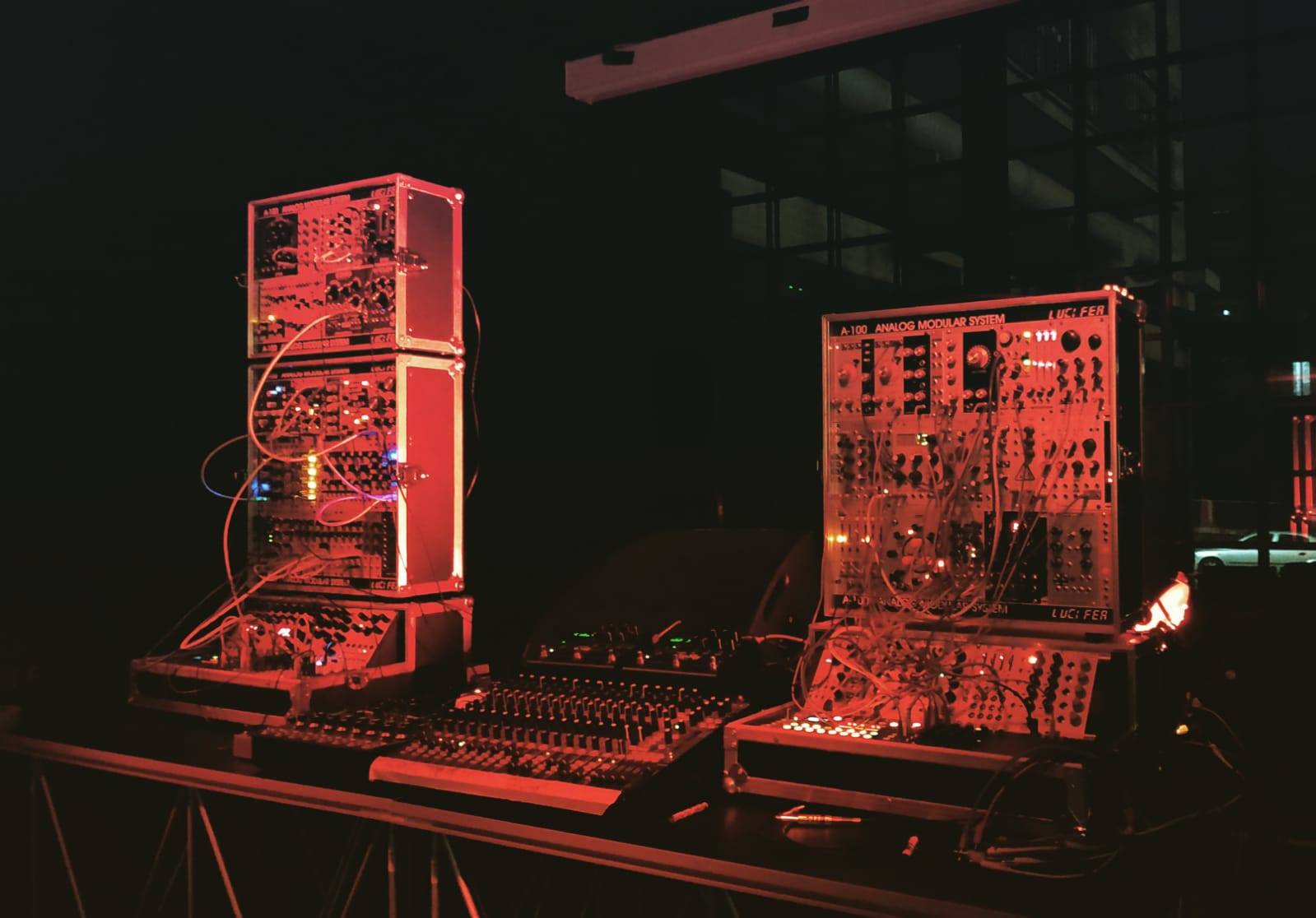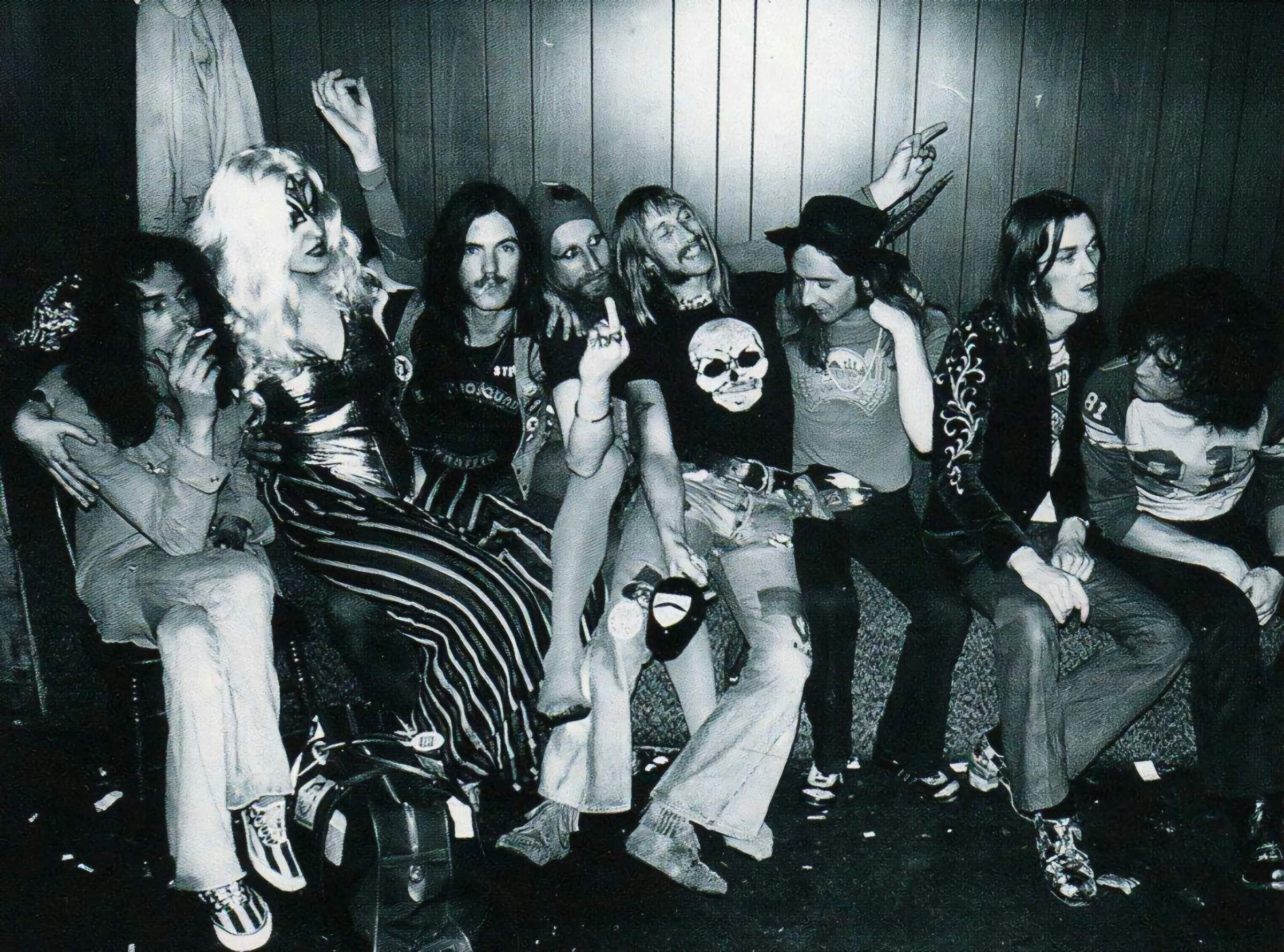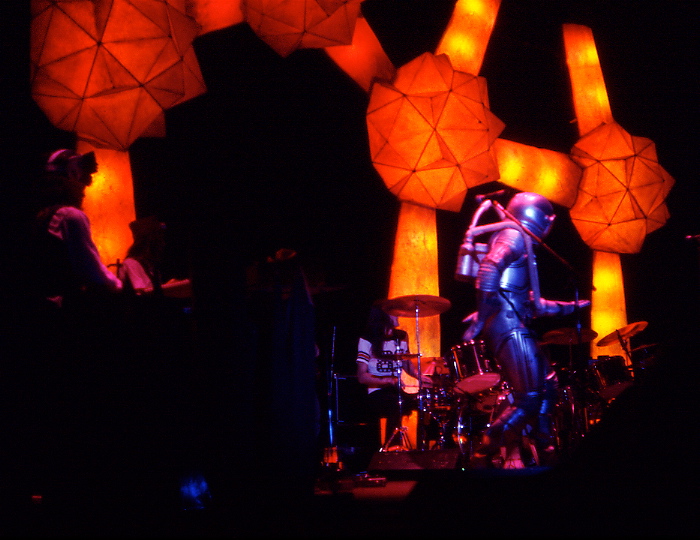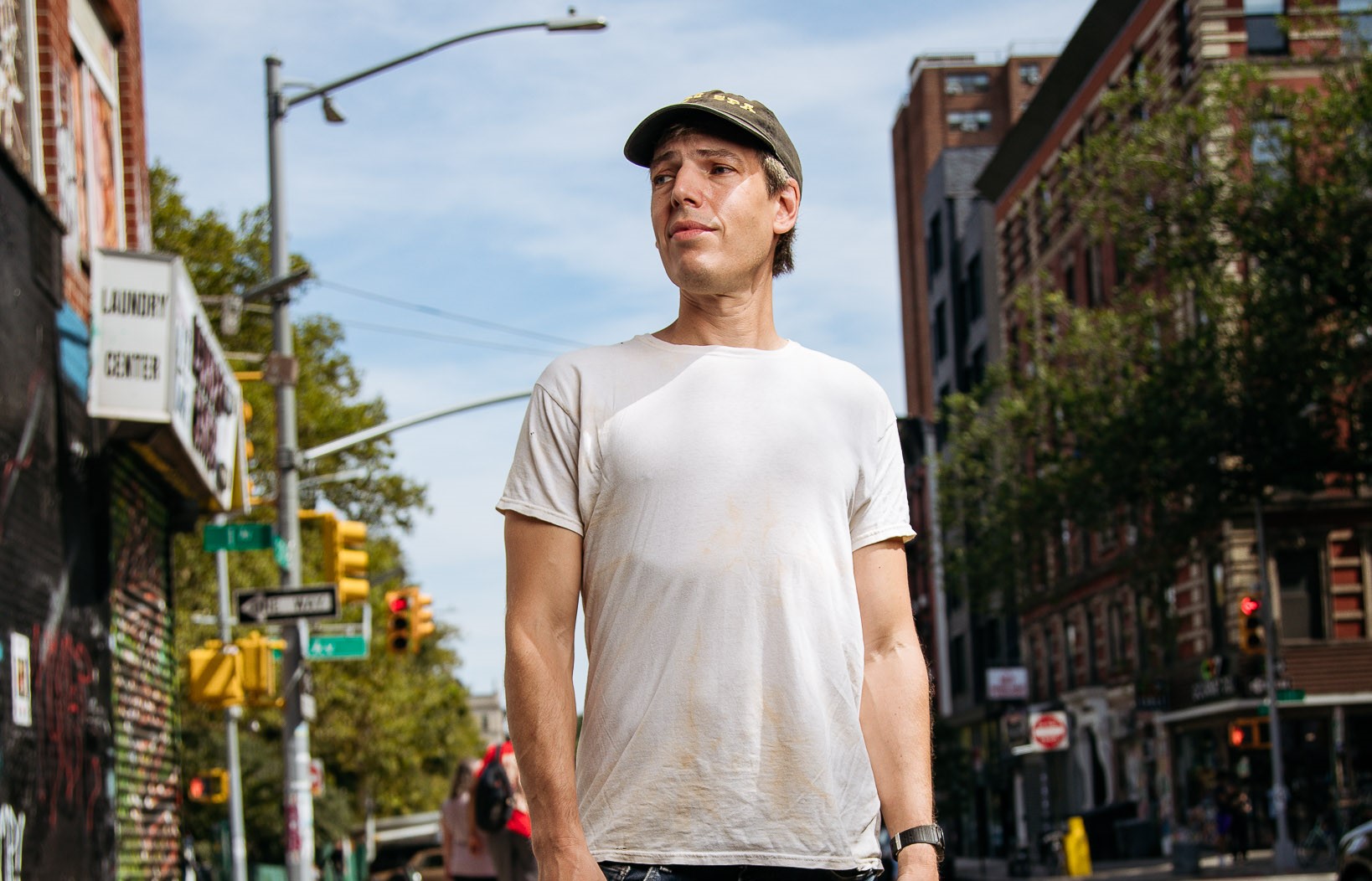Davide Ricci | Interview | “Awaiting the Dragon”
‘Awaiting the Dragon’ is an esoteric horror synth tape by 29-year-old Rome-based electronic musician Davide Ricci, released on Heimat Der Katastrophe.
This release explores a unique blend of dungeon synth and Berlin School elements with a hint of new age, inviting listeners into a world of ancient mysteries and hidden depths.
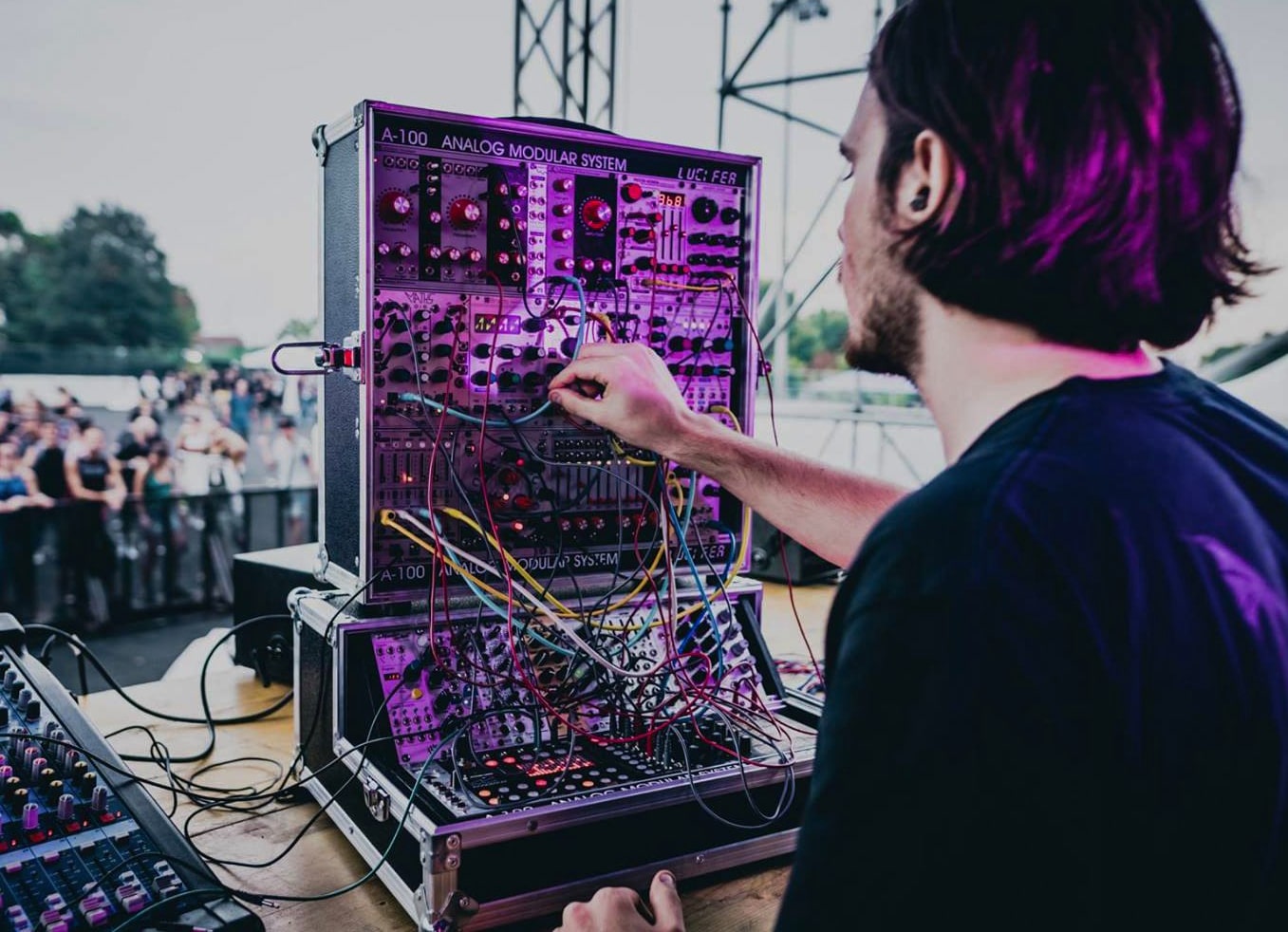
“I believe analog synths have always been core instruments for electronic musicians”
I really enjoyed listening to ‘Awaiting the Dragon’. You can really feel how it carries the tradition of 70s German Kosmische Musik on one hand, and combines it with 90s Scandinavian dungeon black metal on the other hand. Maybe I’m already sharing too much of my personal interpretation of your music. What kind of album did you intend to create with ‘Awaiting the Dragon’? Do you see this music as a tribute to your influences: krautrock and (black) metal/punk? Or does everyone naturally become a “sponge,” absorbing their influences, whether they realize it or not?
First of all, I would like to thank you for reaching out and showing interest in my musical project. I really appreciate that you enjoyed listening to the album!
‘Awaiting the Dragon’ was born from a collaboration with the Italian label Heimat der Katastrophe, with whom I connected in 2022 to work on the album ‘The Occult Summoner,’ a dark-ambient album that differs from this one in terms of musical themes and approach to composition. When I started composing ‘Awaiting the Dragon,’ I was deeply influenced by the new Berlin-school scene and also heavily into listening to electronic music from the 70s. From the first track, I decided to use modular synths and keyboards to recreate those iconic sounds. As I listened to the entire album, I realized that the influence of Dungeon Synth and Metal riffs was inevitable because these musical genres have populated my playlists and shelves for a long time.
However, I never really know what to expect at the end of my productions because my tracks are mostly recorded in live improvisations, influenced by various emotional factors. I usually achieve what I want, but if a track doesn’t work out, it ends up on one of my hard drives, along with many others.
On your own site, you mention Schulze, Eno, and Tangerine Dream as your main influences. Why these musicians?
These are just some of my favorite artists. I spend about 70% of my day listening to music and discovering new artists and albums. I’ve always listened carefully to Schulze, Eno, and Tangerine Dream to understand how their sound and arrangements evolve.
I’ve listened to Schulze’s entire discography (including his parallel projects like The Cosmic Jokers and Ash Ra Tempel) multiple times, and each of his albums stands out due to pure improvisation. He has collaborated with some of the greatest artists in the scene, and I have deep respect for his work. I think the first time I listened to him, I didn’t even know what Berlin-school music was.
Eno contributed to my discovery of ambient music. He was one of the first artists in the genre I appreciated, a great innovator and synth expert. I’ve always been fascinated by him because, in some of his productions, he incorporates various acoustic instruments to enhance the sound, experimenting with different possibilities and pushing the instruments to their limits.
Tangerine Dream (Schulze was also with them in their early albums) played a significant role in the evolution of electronic music, taking it to the next level. In my opinion, their first eight albums are essential in the genre. These extensive sequences transport the listener to another dimension.
I also want to point out that all these artists share the experience of creating soundtracks. Writing for a movie is, I believe, very rewarding. The viewer/listener is more immersed in the audiovisual experience. You can have a lot of fun playing with sound and creating dissonances between what you see and what you hear. This is why I felt in perfect harmony with Heimat der Katastrophe, who creates stories that can be read while listening to the album, allowing you to open your imagination and craft your own images.
Why did you prefer to work with analog synths on this album? Does this give the music a “retro feel,” in your opinion?
Creating a retro feel was definitely one of my goals. For about ten years, I’ve been involved in the international distribution of synths, modular synths, and other analog and digital instruments. Throughout this time, I’ve closely observed the evolution of music production facilitated by these tools, and I’ve had the chance to test and compare them. Thanks to this experience, I realized that analog instruments are essential for creating an imperfect and unrepeatable sound that reflects human nature.
When I use modular synths, I have to create a “patch” with cables, essentially routing the current from one module to another to generate the sound I need. This process—along with physically turning knobs and interacting with the hardware to make music—includes working with electrical currents. Because of this hands-on approach, I believe analog synths have always been core instruments for electronic musicians. What I, along with many other artists, do today involves this tactile interaction with the equipment, which carries with it all the quirks and imperfections that come with analog technology.
Is this “retro-futuristic” music—music that was considered futuristic in the past?
I find the term “retro-futuristic” somewhat challenging to define. We live in an era where many musicians blend genres to create something new, often incorporating elements that might not have previously coexisted. I’m not very skilled at categorizing music, especially when multiple influences are involved. It becomes even more difficult when I have to categorize my own music…
If I had to label the music on ‘Awaiting The Dragon,’ I’d call it electronic, Berlin-school, ambient, and dungeon synth, which clearly draws inspiration from the story created by Heimat der Katastrophe that accompanies the album’s release.
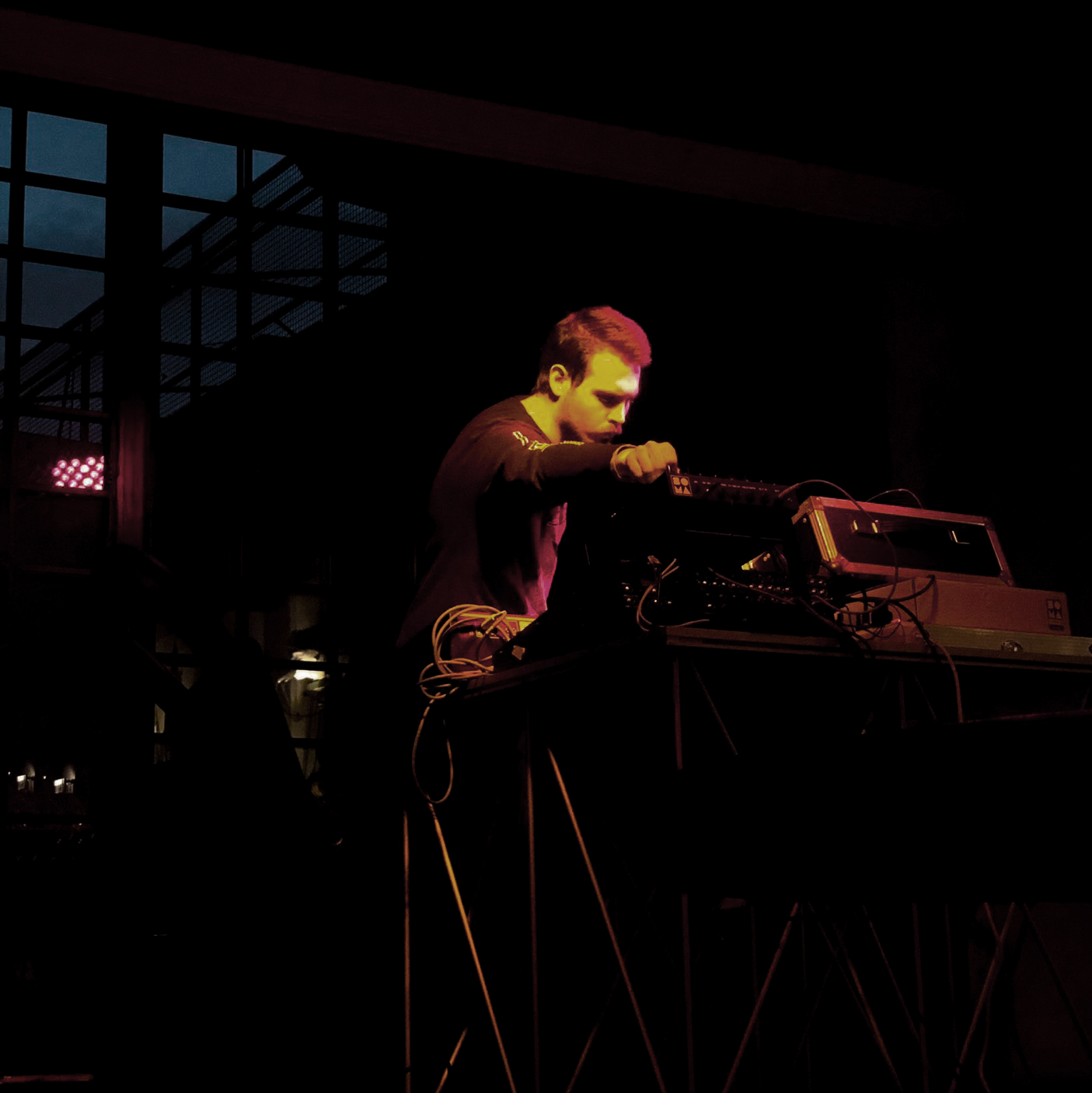
“I just love turning knobs”
Do you think your music will sound different when you “turn knobs” instead of “watch a screen”?
For me, it’s a different approach. It’s not just about turning knobs; it’s about using electrical current as a sound generator (especially when we’re talking about entirely analog instruments). When you turn knobs, you make changes to an electronic circuit, interacting with something that resonates with our own nature. We are, after all, made of electricity—our brains operate through electrical connections, enabling us to perceive the world, move, communicate, and more. So for me, making music this way feels deeper. If you’re making music by “watching a screen,” you might have a different perspective, but it can be equally profound. I do use plug-ins or digital synths sometimes, but it’s just not the same feeling for me.
Does it really sound different? I don’t know for sure. I just love “turning knobs.” With the latest technologies, it can be hard to distinguish between digital and analog instruments, or to tell if something was played live or programmed. But here’s the thing: ambient noise or interference from analog machines—you can only get that one way… haha.
Do you differentiate between “high art” and “low art”? Between the academic side of (experimental) electronic music and home-made experiments by self-taught musicians, such as in new-age or (early) black metal?
I’ve always been a student of sound, and I continue to study it for my work as a sound engineer. I graduated in sound engineering at 20, but I’ve been producing music and gaining hands-on experience since I was 14. Given this background, I have a clear understanding of what it means to create experimental music. In my opinion, if you want to experiment, you need to know your instrument inside and out. Experimenting involves breaking away from conventions and creating something that doesn’t already exist. However, to do that, you need to know what the conventions are, and you need to be proficient in a traditional approach to your instrument to be able to break the rules. That said, it really depends on a lot of factors.
In the case of metal or punk genres, it’s a different story. It’s more about what you want to communicate to the listener. The punk movement, for example, was about rejecting all forms of control, whether from social norms, mass media, or religious organizations. Similarly, Norwegian black metal was, in some contexts, a reaction against the spread of Christianity in their culture. I love all genres, but I particularly appreciate the most extreme ones because they don’t shy away from confronting hard truths. These genres embrace freedom of expression. Ultimately, what’s important is that you’re communicating something, not just how you do it. I think someone making ambient music can still have a punk attitude if they approach it with the right mindset.
You’ve been making and releasing music for about ten years now (I suppose). How do you feel your music has changed and evolved during that time?
I’m quite critical of my work. If I listen to what I’ve done in the past, I can see that I’ve changed and evolved, but I’m not sure whether it’s in a negative or positive way. I don’t like following a straight line; I prefer exploring different paths. Each of my albums has a unique concept and yields different results. I enjoy changing things up and experimenting with something new. As I mentioned earlier, every time I write a track, I’m influenced by my surroundings and my emotional state at that moment. What I’ve created over the years reflects parts of my private life, encompassing both high and low points. In my tracks, you can discover a bit of who I was and who I am today.
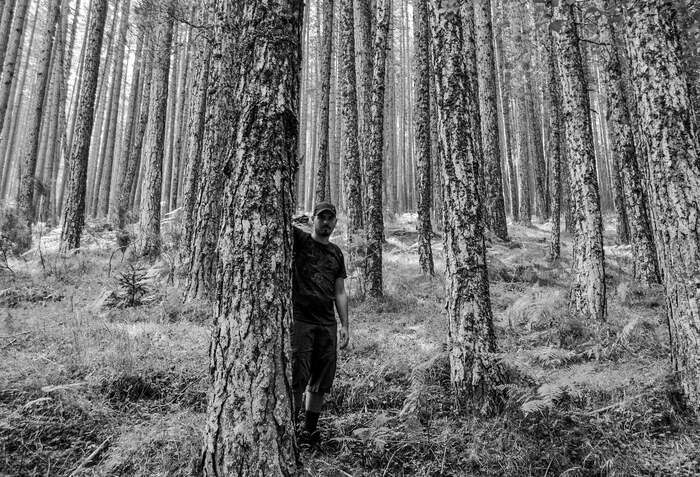
How did you get “into music”? And how did you get into electronic music? At which point did you start to take music “seriously,” and when did you know that music was more than “just a hobby2for you? Why did you decide to study music recording and mixing?
I don’t remember the first time I got into music—it feels like it’s always been a part of me, present at all moments of my life. I really don’t recall the first album I listened to. I just know that when I listen to music, everything around me seems to disappear.
I started to take music as a job when I was 13, playing as a DJ at small private parties in the small town where I grew up (Brindisi, Apulia, Italy). That’s when I began purchasing music and equipment for live performances. After a few gigs, I felt the urge to take it further, so I pursued sound engineering studies in Turin (Italy) to explore the details of sound—what it is, how it reaches our ears, and how it affects our emotions. I then started working in the professional audio industry in Rome, where I met many experts and collaborated with some of the most important musicians in the Roman electronic scene.
Music composition has always been my ultimate goal. I’m not particularly good at expressing myself with words (in this interview, I probably contradicted myself several times)… so I’ve always felt the need to write music to convey what’s inside me—things I’ll never be able to express with simple words. I don’t consider what I do as a job; it’s pure passion and joy. It’s not about making money; it’s about evoking emotions in listeners. I want them to feel the same emotions I felt while composing or listening to my tracks. I want to make their day better, just like it was for me when I first listened to albums like Schulze – ‘Timewind’ (1975) or Wongraven – ‘Fjelltronen’ (1995), to name just a few.
I currently earn my salary from my work as a sound engineer. Turning composition into a job sometimes scares me. I fear that the purity, imperfection, and spontaneity I feel while playing could disappear. But I don’t worry too much about that; as long as I have the opportunity to play and release my music, I’m at peace with myself.
Ultimately, I’m grateful to everyone who has believed in me and supported me so far. Without their encouragement, I might not have found the determination to create ‘Awaiting The Dragon’.
Let’s keep the music alive!
Joeri Bruyninckx
Headline photo: Davide Ricci and Luciano Lamanna | Balance project – live set
Davide Ricci Official Website / Facebook / Bandcamp
Heimat Der Katastrophe Official Website / Facebook / Instagram / Bandcamp

